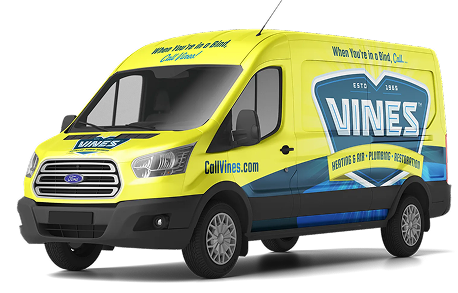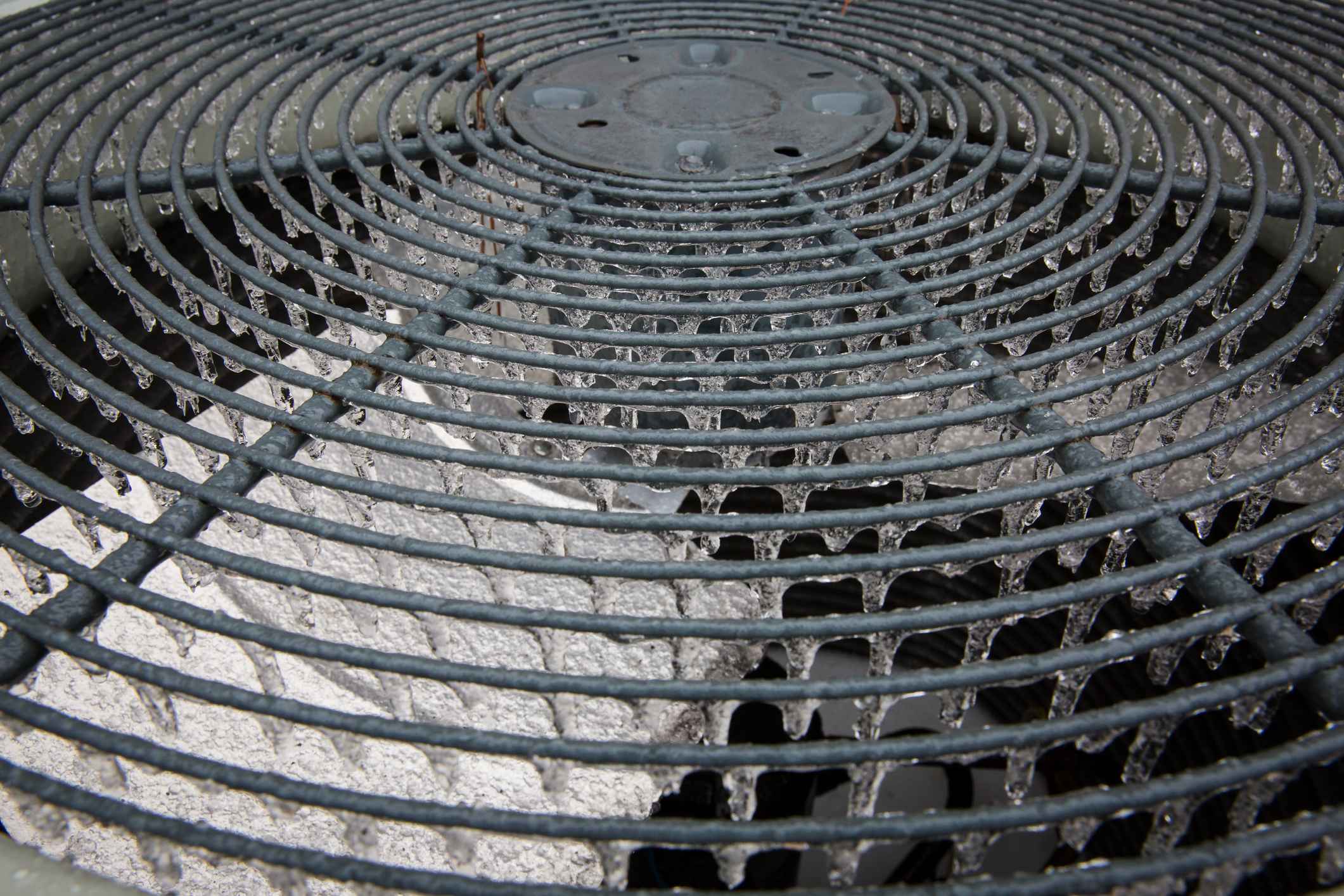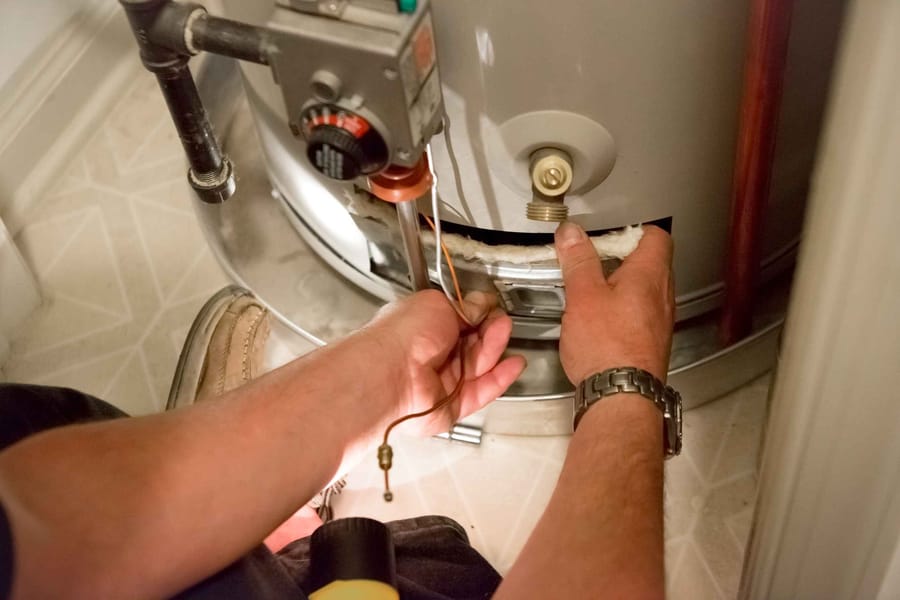Choosing the Right AC Unit for Your Myrtle Beach Home: An AC Installation Guide
When You’re in a Bind, Call Vines!
3380+ 5 Star Reviews
Give Us A Call



Living in Myrtle Beach means sunshine, ocean breezes, and humid summers. When those high temperatures roll in, you need an air conditioning system that’s powerful enough to cool your home but also efficient enough to keep your energy bills in check.
Whether you’re replacing an old unit or installing a new AC system in your home, choosing the right air conditioner can make all the difference in comfort, energy savings, and long-term reliability.
In this guide, Vines walks you through everything you need to know about AC installation—from size requirements and SEER ratings to selecting the right type of unit for your Myrtle Beach home.
Factors That Matter Most When Choosing an AC System
Choosing a new air conditioning system isn’t just about picking the first unit that fits your budget—it’s about finding the right solution for your home’s unique needs. From Myrtle Beach’s coastal humidity to the size and layout of your space, several key factors can impact how well your AC performs and how much it costs to run.
Taking the time to understand these considerations can help you make a smart investment that keeps your home comfortable year-round while avoiding energy waste, costly repairs, or premature cooling system replacement.
Below, you’ll find the most important things to keep in mind when evaluating air conditioning units for your AC installation.
1. Types of Air Conditioners: Which One is Right for You?
While central air conditioners are the most common type of cooling system, there are other options available when selecting a new unit for your home. Here’s a look at the main types available, along with their pros and cons—if you’re unsure what’s best for your home, Vines’ experienced team can guide you through your options based on your budget, lifestyle, and long-term plans.
Central Air Conditioning
Central air conditioners use ducts to distribute cool air throughout your home. Warm indoor air is pulled into the AC system and passed over the evaporator coil, where heat is absorbed and moisture is condensed and removed from the air. That cooled air is then pushed back through the ductwork to every room, while the absorbed heat is released outside via the condenser unit.
This type of AC system is ideal for homes that already have ductwork in place, such as newer builds or houses with forced-air heating systems. Central air conditioners work especially well in medium to large homes where consistent, whole-home cooling is needed.
- Pros: Even cooling throughout the home, quiet operation
- Cons: Higher installation cost if ductwork installation or modification is needed, requires duct maintenance
Heat Pumps
Heat pumps are energy-efficient systems that provide both cooling and heating by transferring heat rather than generating it. In the summer, they work like a traditional air conditioner by pulling heat out of your home and releasing it outdoors. In cooler months, they reverse the process—drawing in heat from the outside air (even when it’s chilly) and transferring it indoors to warm your space.
Heat pumps are an excellent option for homes in mild climates like Myrtle Beach, where extreme cold is rare. They’re ideal for year-round comfort in single-family homes, townhomes, or vacation properties that need efficient temperature control without the need for a separate furnace. Homes without gas lines for heating or those looking to reduce their carbon footprint can also benefit from an all-electric heat pump..
- Pros: Energy-efficient, environmentally friendly
- Cons: Less effective heating in extreme cold, higher upfront cost than a standard furnace or air conditioning installation
Ductless Mini Split Systems
A ductless mini split is a compact HVAC system that consists of two main components: an indoor air-handling unit and an outdoor compressor or condenser. These two parts are connected by a small conduit that houses refrigerant lines, drain lines, and electrical wiring. Ductless systems come in two main types: ductless air conditioners (for cooling only) and ductless heat pumps (for both heating and cooling).
Unlike traditional systems, they don’t require ductwork to distribute air—conditioned air is delivered directly from the indoor air handler into the space where it is installed. Ductless systems are perfect for homes or areas where ductwork is unavailable or impractical.
They’re a popular choice for older homes without existing ducts, room additions or garages, finished attics, guest houses or in-law suites, and individual rooms that need custom climate control. Ductless mini splits are also ideal for zoned whole-home comfort, allowing homeowners to control the temperature in each room independently.
- Pros: Zoned cooling, energy-efficient, quick installation, no ductwork needed
- Cons: Higher initial cost per zone, visible wall-mounted units (in-ceiling options are also available)
2. AC Unit Sizing: Bigger Isn’t Always Better
One of the most common air conditioning installation mistakes homeowners make is choosing an AC unit that’s too large or too small for their space. An air conditioner that’s too big will cycle on and off frequently, wasting energy and failing to remove enough humidity. On the other hand, a unit that’s too small will run constantly, struggling to cool your home and wearing out faster.
The size of an AC unit is measured in BTUs (British Thermal Units) or tons. For air conditioning units, tons refers to the amount of heat that can be removed from a space per hour—not the weight of the unit itself. 1 ton is equal to 12,000 BTUs. Typical homes require 1 ton per 600–1,000 square feet, depending on insulation, windows, and sun exposure.
When it comes to sizing for your AC installation, don’t guess—get a professional load calculation. An HVAC professional from Vines can evaluate your home’s size, layout, insulation levels, and other factors to determine the right capacity for your air conditioner installation so you don’t end up with an oversized or undersized unit.
3. Understanding SEER Ratings: Efficiency Saves Money
SEER stands for Seasonal Energy Efficiency Ratio, and it measures how efficiently your air conditioner cools your home. In simple terms, SEER tells you how much cooling you get out of your air conditioner for every unit of energy it uses over an average cooling season. The higher the SEER rating, the more energy-efficient the AC unit.
The minimum SEER rating for air conditioning units in South Carolina is 15. If you plan to stay in your home for many years, it may be worth investing in a higher-SEER system. Though they cost more upfront, the energy savings over time can be significant, especially with Myrtle Beach’s long cooling season.
4. Humidity Control: A Coastal Necessity
In Myrtle Beach, humidity is a big deal. Excess indoor moisture can make your home feel warmer than it is, lead to mold growth, and even damage wood and electronics.
When planning for your new air conditioner installation, choose a system that effectively manages humidity. Many high-efficiency AC systems and heat pumps come with advanced moisture control features. You can also add a whole-home dehumidifier to your AC system for even better performance.
5. Smart Features and Upgrades
Many air conditioning systems come with features designed for comfort and convenience. Some optional upgrades worth considering during your AC installation include:
- Smart Thermostats: Control your system remotely and create energy-saving schedules.
- Variable-Speed Blowers: Improve energy efficiency and maintain consistent temperatures.
- Zoning Systems: Cool different areas of your home independently.
While these features add to the initial cost of a new unit, they offer long-term benefits in comfort and efficiency.
Professional AC Installation Matters
Even the best AC unit will underperform if it’s not installed correctly. Proper air conditioner installation is necessary to ensure optimal performance. With a qualified HVAC technician performing the AC installation process, you can count on:
- Accurate refrigerant charge
- Correct airflow and duct sealing
- Proper electrical and safety connections
- Manufacturer warranty protection
At Vines, our licensed and experienced HVAC technicians handle the entire process—from the initial consultation to testing the new system for performance and safety. We treat your home like it’s our own and make sure your new AC is set up for long-term success.
Air Conditioner Installation Costs
Investing in a new air conditioning system is one of the most important decisions you’ll make as a homeowner, especially in a climate like Myrtle Beach. But while the comfort, energy savings, and long-term value are clear, the upfront cost of a new AC system can feel like a hurdle.
Factors Impacting AC Installation Costs
The total cost of your AC installation can vary based on several factors: the type of system you choose, the size of your home, any necessary modifications (like ductwork or electrical upgrades), and the features or efficiency level you want. While it’s tempting to focus solely on the initial price tag, also keep in mind the long-term return through lower energy bills, fewer repairs, and improved indoor comfort.
Tax Credits
Investing in an energy-efficient system doesn’t just save you money on your monthly utility bills. Homeowners who install certain high-efficiency HVAC systems may be eligible for tax credits that offset part of the AC installation cost. These incentives can make upgrading to an ENERGY STAR-certified unit even more cost-effective.
Financing Options
Replacing or installing a new air conditioner is a major investment. Vines offers financing options that make it easier to get the system you need without breaking the bank. Financing allows you to spread the cost over manageable monthly payments, so you don’t have to compromise on quality or long-term efficiency due to budget constraints.
Schedule Your AC Installation With Vines
If you’re ready to beat the heat in comfort, let Vines handle your next AC installation. We’ll help you select the perfect system and provide expert installation so your home stays cool, dry, and comfortable no matter how hot it gets outside.
Whether you’re building a new home, upgrading an old system, or simply exploring your options, our team is here to answer your questions and guide you every step of the way.
Call us today to schedule a free estimate and consultation for your air conditioner installation in Myrtle Beach!
Schedule Service Today
For immediate assistance in Horry & Georgetown Counties, please call us or schedule service.


